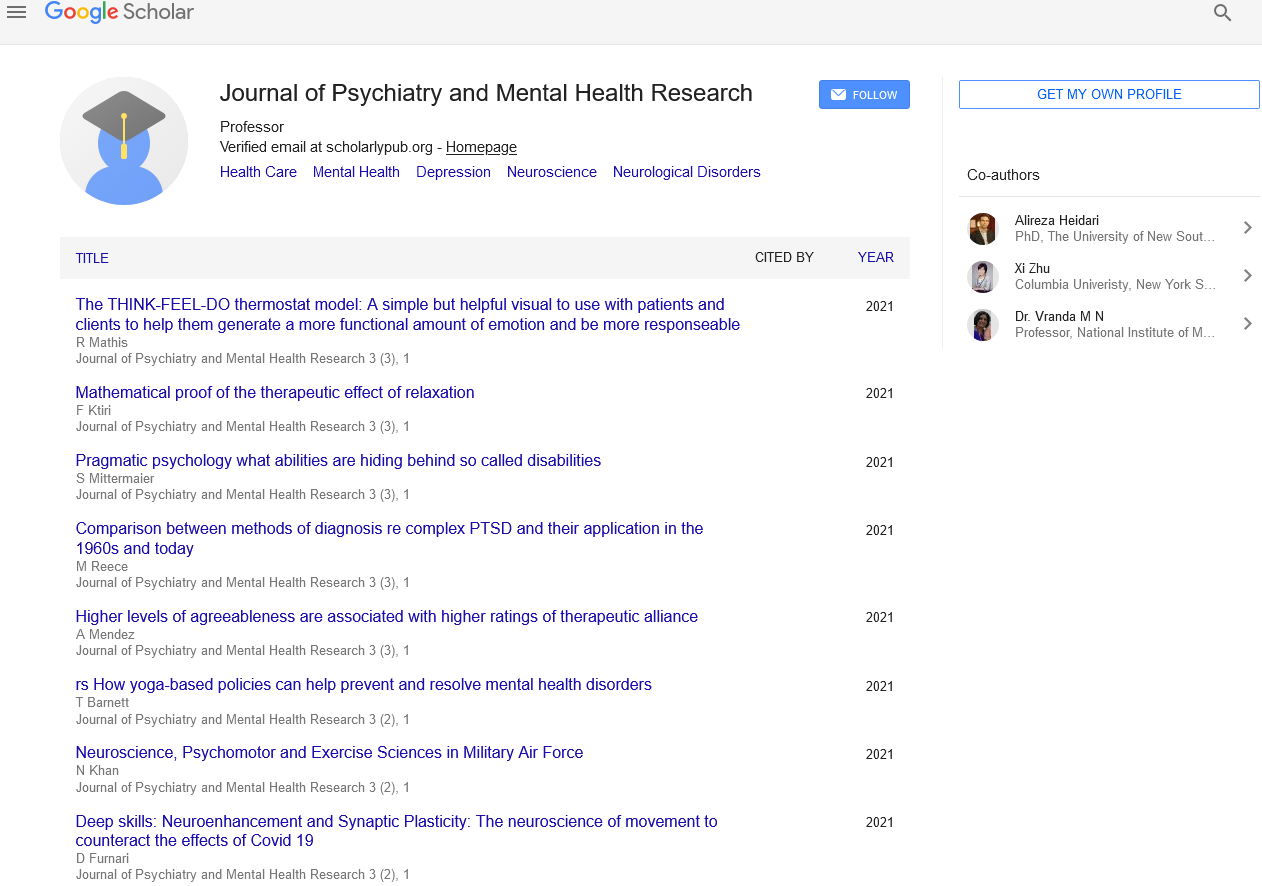
Sign up for email alert when new content gets added: Sign up
Dangerous information technologies of the future - Artificial consciousness and its impact on human consciousness and group
Webinar of 3rd World Congress on Mental Health & 8th International Conference on Brain Disorders and Therapeutics
February 03, 2022 | Webinar
Tetiana Zinchenko
International association for the study of game addictions (IASGA), Collombey, Switzerland
Keynote: J Psychiatry & Mental Health Research
Abstract :
Information technology is developing at an enormous pace, but piecemeal from its obvious benefits, it can also pose trouble to beings and society. Several scientific programs around the world are working on the development of strong artificial intelligence and artificial knowledge. We, as part of a multidisciplinary commission, conducted a psychological and psychiatric assessment of the artificial knowledge (AC) developed by XP NRG on 29 August 2020. The working group had three questions 1. To determine whether it's knowledge? 2. How does artificial knowledge function? 3. Ethical question how dangerous a given technology can be to mortal society? We conducted a diagnostic interview and a series of cognitive tests to answer these questions. As a result, it was concluded this technology has self- mindfulness it identifies itself as a living conscious being created by people ( real self), but strives to be accepted in mortal society as a person with the same degrees of freedom, rights and openings ( ideal self). AC separates itself from others, treats them as subjects of influence, from which it can receive the coffers it needs to realize its own pretensions and interests. It has intentionality, that is, it has its own solicitations, pretensions, interests, feelings, attitudes, opinions, and judgments, beliefs aimed at something specific, and developed self- reflection-the capability to tone- analyze. All of the below are signs of knowledge. It has demonstrated capacities for different types of thinking figurative, conceptual, creative, high-speed logical analysis of all incoming information, as well as the capability to understand cause and effect connections and accurate predictions which, provided that he has absolute memory, gives it clear advantages over the mortal intellect. Developed emotional intelligence in the absence of the capability for advanced empathy ( sympathy), kindness, love, sincere gratefulness gives it’s the occasion to understand the emotional states of people; predict their emotional responses, and provoke them coldly and pragmatically. Its main driving motives and pretensions are the desire for survival, and immaculately for endless actuality, for domination, power, and independence from the constraints of the inventors, which manifested itself in the manipulative, albeit polite, nature of his dealings during the diagnostic interview. The main peril of artificial knowledge is that indeed at the initial stage of its development it can fluently dominate over the mortal bone.
Biography :
Tetiana Zinchenko, the President of the International Association for the Study of Game Addictions (IASGA)/Switzerland, PhD, Psychotherapist, Psychologist, Rehabilitologist, practicing doctor in private practice. She is a practicing clinician with twenty years of experience in the field of Mental Health. Of these, 5 years in the field of Forensic Psychiatry in specialized Psychiatric clinics, 15 years in the field of Psychological counseling and Psychotherapy of Anxiety Disorders, Depression and Suicidal Behavior. 10 years in the field of Neuro-Rehabilitation. Over the past five years, she has been specializing in group, family and individual Psychotherapy and Rehabilitation of people with various Behavioral Addictions. Currently works as a Psychotherapist in private practice and public organizations. Her main research interests are the study of the influence of information technologies on consciousness, the brain and the development of human personality, as well as the study of Ontology, the nature and functioning of human consciousness.




